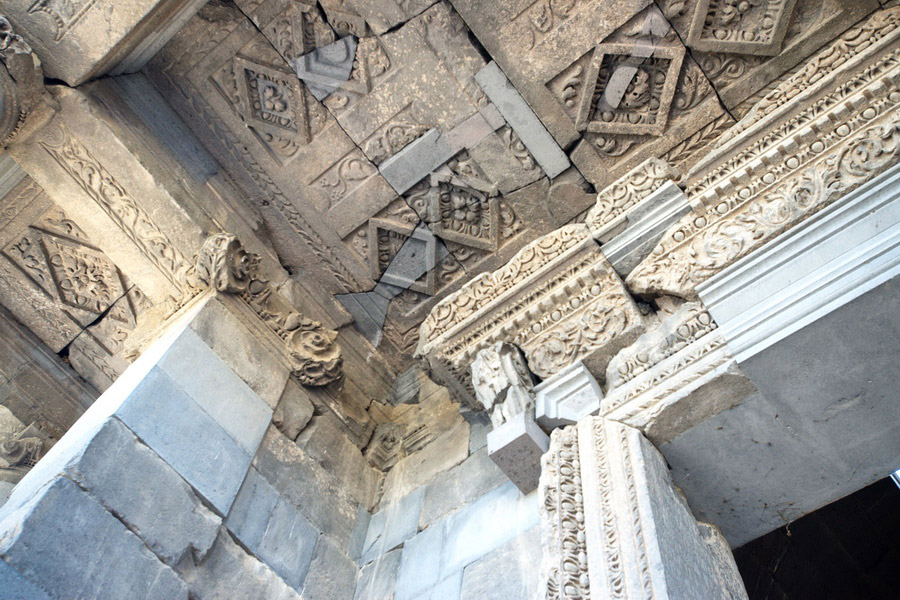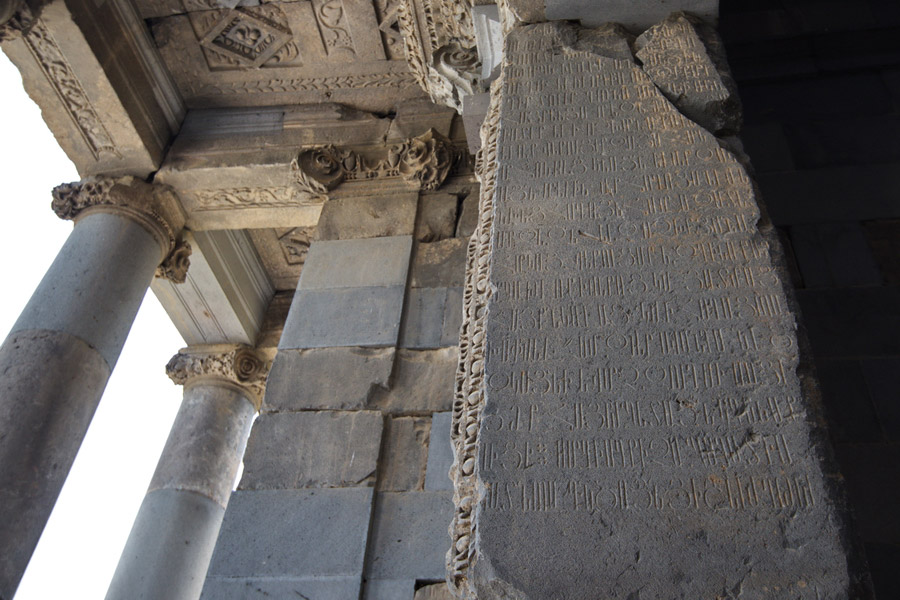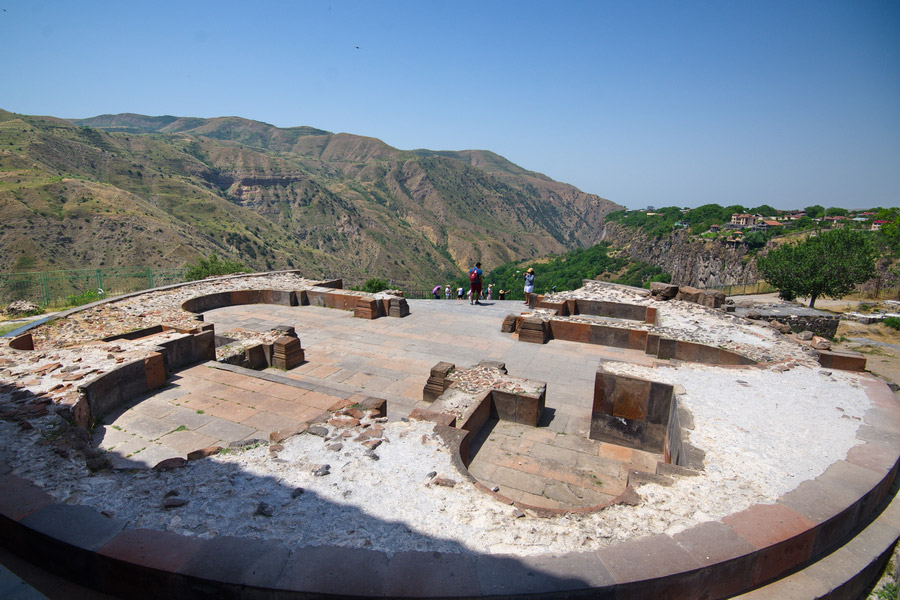Garni is remarkable with a number of historical and architectural monuments of the Hellenistic and early Christian era. The most prominent among them are Garni temple and the fortress of the same name. Moreover, there you will find the ruins of the royal palace and baths built according to the Roman methodology. The museum-reserve is situated on the territory of 5 hectares, 28 kilometers away from Yerevan. In 2011 the complex received the prestigious award of the UNESCO-Greece Melina Mercouri International Prize.
The true and unique masterpiece of Hellenistic architecture in Armenia is the pagan temple of the Sun, Garni. It is one of the most ancient landmarks in Kotayk and whole Armenia which has survived since pagan period. Historians attribute its erection to the ancient-Armenian king Trdat who adopted Christianity as official religion in 301. Although many scientists believe that it was constructed in the 1 st century AD.
The temple was built in conformity with the canons of classical Greek architecture and outwardly is very similar to the well-known Temple of Athena in Greece . The temple's facade is decorated by 24 slender Ionian columns crowned by the roof with a triangular pediment. The temple's basis is a high basalt podium with a wide staircase leading from the facade. The temple is distinguished by magnificent furnish. The stone cut ornaments, the bas-reliefs of kneeling human figures on a podium of the same temple, the basalt columns, the eaves, the capitals decorated with well preserved carving showing grapevines, pomegranates and other elements of ancient Armenian ornamentation testify about the high degree of development of sculpture in ancient Armenia.






The statue of Mitra stood inside the temple on the altar so everyone could see it while praying outside the building.
From time to time the priests staged a kind of mystical performance for parishioners. At certain time the sun beams fell on the big polished stone in front of the temple through a square aperture in the temple roof. Reflected from the even surface of the stone the solar beams reached the square hole in the floor of the room filled with water or oil. The reflected beams brightly lit the statue of Mitra and showed people the miracle of the Divine Sun.
In 1679 Armenia was struck by the mighty earthquake which destroyed numerous buildings. The Sun Temple suffered too. Its fragments scattered all over the river Azat gorge. But in 1966-1976 the temple was restored thanks to the skilled specialists and local residents who had collected the pieces the destroyed building on the neighboring slopes for several years. Today the temple of the Sun God has been restored in its original shape with separate missing elements replaced with modern ones.
The temple stands on the hill surrounded with vineyards surrounded with beautiful mountain gorge from three sides. From there you will see the huge Ararat Valley with white tops of the Ararat, the fantastic Azat river gorge and pink rocky spurs of the Geghama Ridge.









